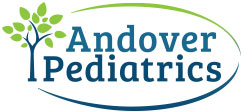Constipation
Constipation is a frequent topic in Pediatrics!
Constipation, commonly experienced at various life stages, is defined as hard, dry bowel movements which are difficult to pass. It may also arise from incomplete evacuation of smaller amounts of stool which may or may not be hard.
Children undergoing toilet training can sometimes become constipated due to fearfulness and stool withholding. Other causes of constipation include low fiber diet, dehydration, certain medications and in some cases an anatomic anomaly.
The symptoms of constipation may be abdominal pain and cramping, infrequent stools, hard stools, small or pebble like stools and/or leakage of stool around a fecal impaction. Additionally a large bulky or hard stool can lead to blood in the stool from an anal fissure.
A visit to the office is indicated if your child experiences blood in the stool, prolonged constipation or if there is fever, vomiting, weight loss and/or significant abdominal pain and swelling of the abdomen.
Constipation is most effectively treated with dietary changes. Offering your child a diverse diet with plenty of vegetables, fruits, whole grains and plenty of water as well as limiting highly processed foods that tend to be high in fat and sugar. Daily physical activity and a regular toileting routine are important factors as well.
Peristalsis of the intestine is the movement of stool forward towards the rectum and this process is triggered by eating. It is therefore best to establish a toileting routine after meal time, typically after breakfast and/or dinner. Lastly, medications can be useful in the treatment of constipation with a recommendation from one of our providers.

